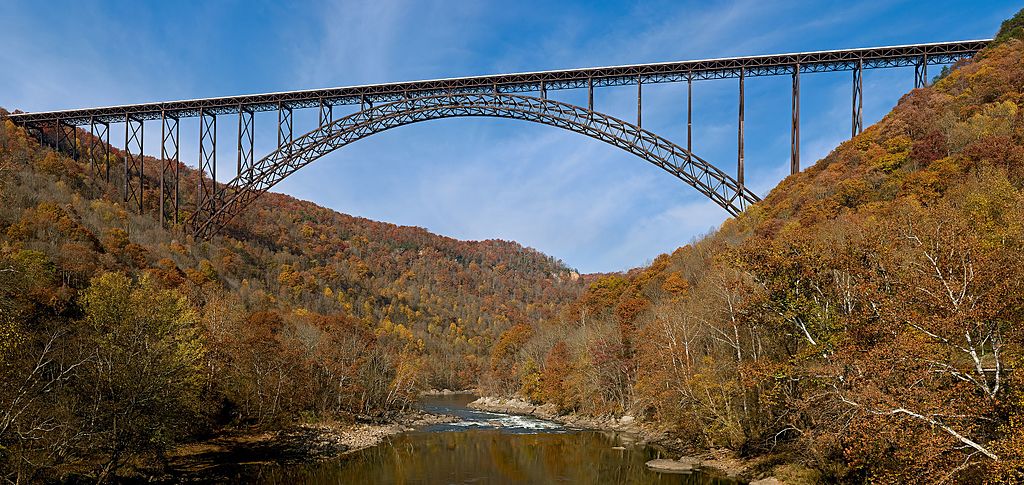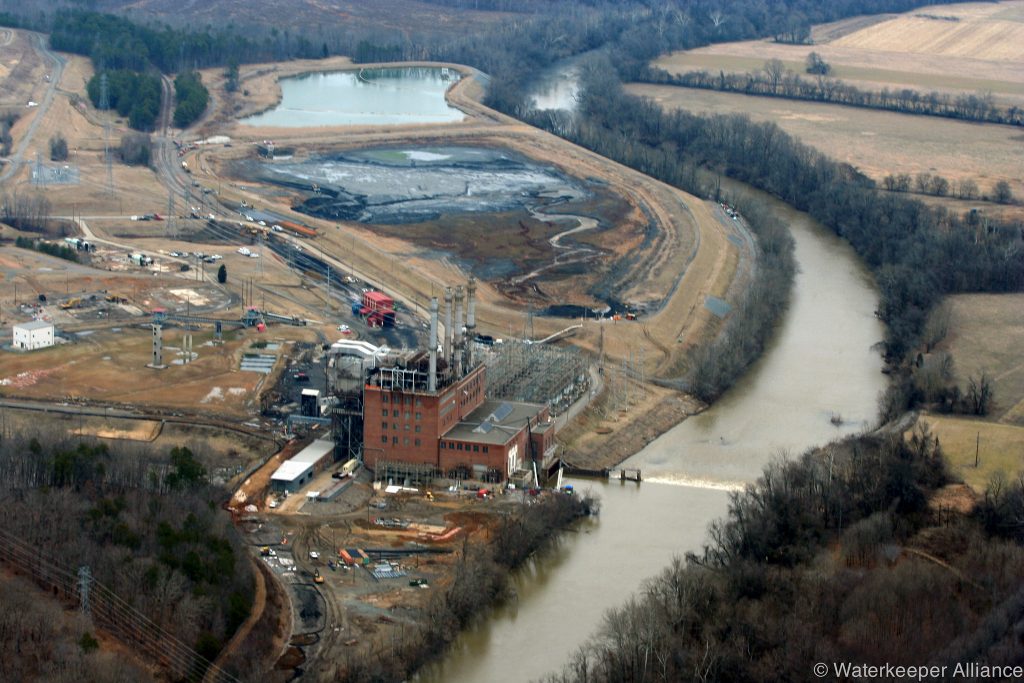
The New River Gorge Bridge is one of the highest bridges in the country. Photo by JaGa / CC BY-SA 4.0
A bipartisan effort led by West Virginia’s two U.S. senators has landed America with its newest national park. The New River Gorge National Park and Preserve joined 62 other federally protected parks in the United States in December, marking the first in the Mountain State to attain this important conservation status.
COVID-19 Restrictions
The New River Gorge National Park and Preserve has several precautionary measures in place due to COVID-19. Make sure to visit the National Park Service website for updates before planning your visit.
The majority of the approximately 72,000-acre area protected by the National Park Service is now classified as a national preserve, a status that allows hunting to continue in the New River Gorge. The remainder, a roughly 7,000-acre area encompassing the famous New River Gorge Bridge that spans the rolling whitewater river, is now a national park.
The park service has managed the gorge since it acquired national river status in 1978. Under this status, the agency was able to revive the rich ecosystem of the gorge from decades of coal mining and other industry pollution that degraded the natural environment. The new status maintains these protections while bolstering the park’s public profile for an increase in tourism.
The area hosts numerous hiking and biking trails, whitewater rafting, rock climbing and other outdoor activities, in addition to cultural attractions like preserved buildings from a historic coal town.
“Over the last two years we have met with outdoorsmen, businesses and local leaders and other interested groups to ensure this designation will promote the beauty and rich history of the New River Gorge, while ensuring that the longstanding traditions of hunting and fishing are protected for generations to come,” said U.S. Sen. Joe Manchin (D-W.Va.) in a December statement.
New River Gorge already brings in more than 1 million visitors annually, and millions of tourist dollars for surrounding communities. However, local businesses have been hurting due to the COVID-19 pandemic, and, according to the West Virginia University Bureau of Business and Economic Research, the area is still recovering from a sharp economic downturn between 2012 and 2016.. Proponents of the decision hope that the some 318 million annual visitors to national parks across the country will include New River Gorge on their list of travels.
U.S. Sen. Shelley Moore Capito (R-W.Va.) told Metro News in December that classifying New River Gorge as a national park and preserve is projected to increase visitation rates by 20 percent. Lawmakers hope this will reinvigorate local businesses and create new jobs.
West Virginia tourism officials don’t expect the uptick in visitation to overcrowd the gorge due to the expansiveness of the area. Legislators designated up to 100 acres of land for the sole purpose of additional parking, one of the few changes to the New River Gorge outlined in the bill.
“Travelers who visit will not have to sit in a long line just to get in. It’s almost as if the park has natural crowd-control built from within, given its accessibility and expanse,” West Virginia Tourism Commissioner Chelsea Ruby told National Geographic in February.
Classifying most of the park as a preserve was a compromise with local hunters who, if the entirety of New River Gorge was transitioned to a national park, would otherwise have been prohibited from hunting, a practice that locals have enjoyed for generations. Now, hunters can continue to use the preserve in moderation while the smaller area that is officially designated as a “park” can operate under more complete wildlife protections.
“Part of the deal was to change as little as possible, in making this shift to a national park,” Roger Wilson, president and CEO of local outfitter Adventures on the Gorge, told The Washington Post in January. “That was extremely important to getting local buy-in from the communities.”
The change in status reflects a major win for conservationists and local communities who enjoy the area for recreation and value its economic assets.
“I am thrilled that this designation will raise awareness of the great natural resources in my home state and the many opportunities available for outdoor recreation and exploration,” said Margaret Everson with the National Park Service in a Jan. 20 press release.
Related Articles
Latest News

Leave a comment
Your email address will not be published. Required fields are marked *




